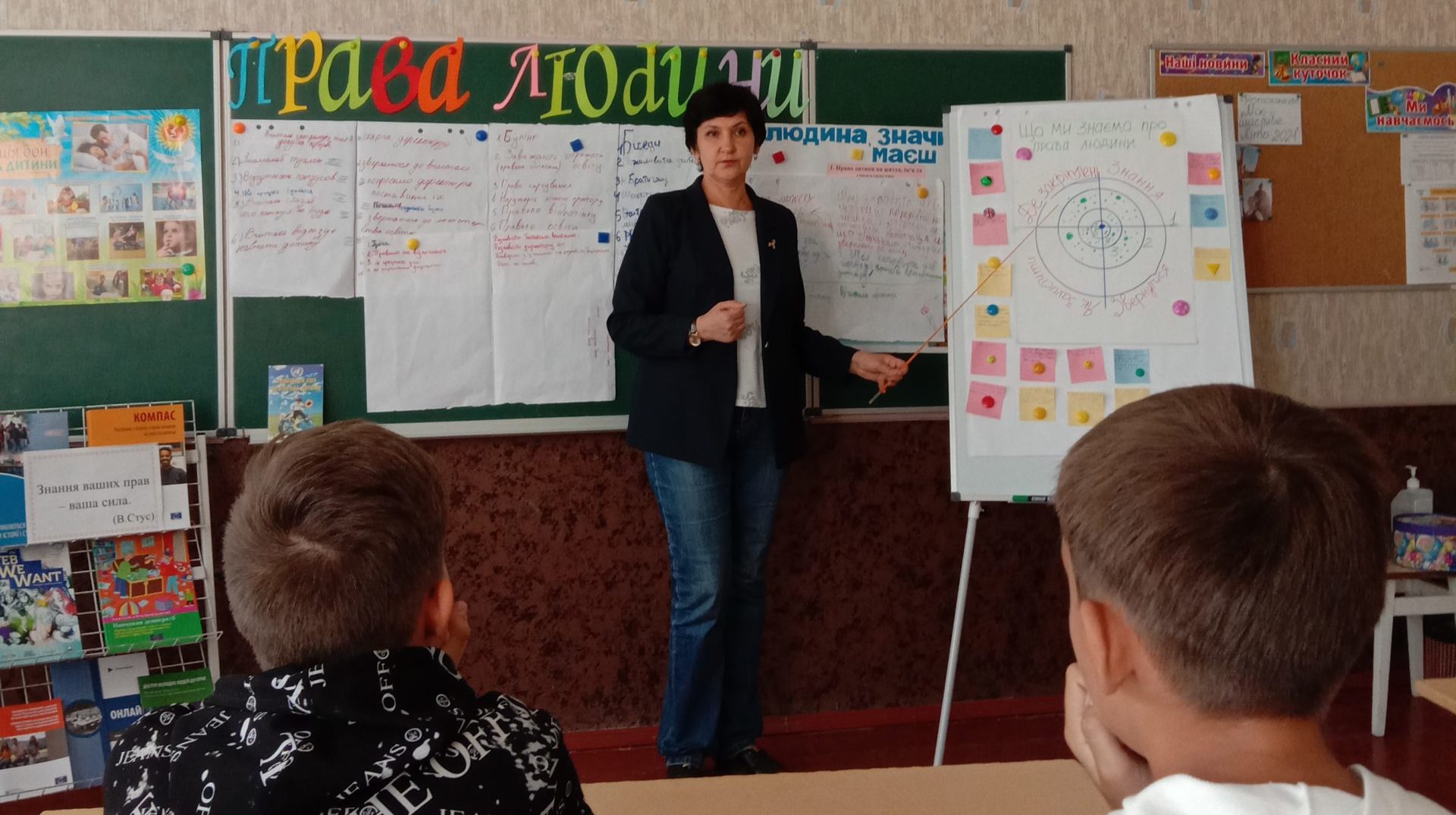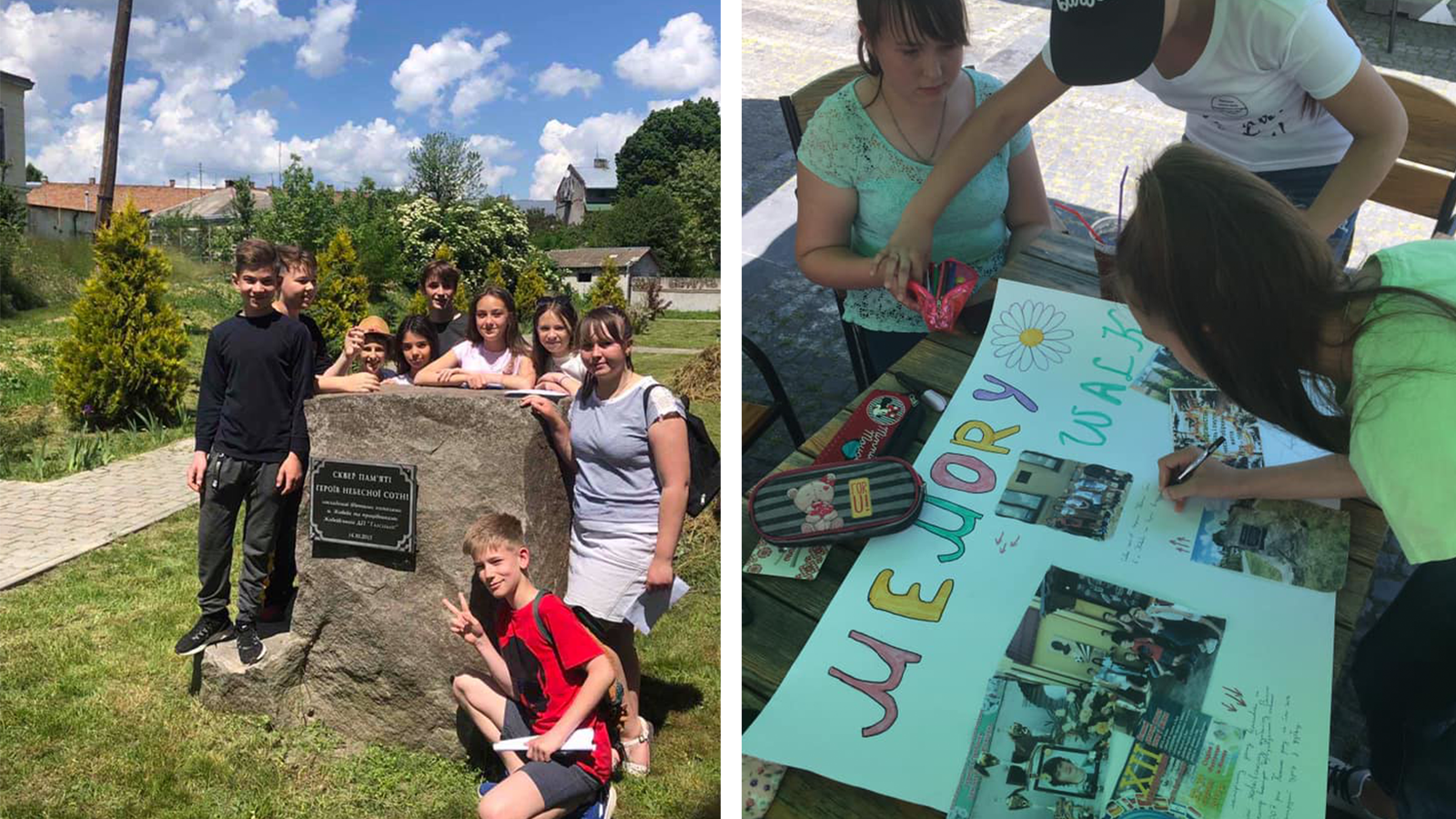Are people ready to give their belongings to those who lost them to war? Can a certain city dim the lights to reduce energy consumption? Can a certain country refuse to purchase products from an aggressor state? I believe so, but for this, we need to realise that solidarity is not only a value but, to some extent, a skill that needs to be developed. This is exactly what this project is aimed at – to find a place of solidarity in oneself.
Nazarii Boyarskyi, “In Search for Solidarity” Project Coordinator.
According to the project organisers, “In Search for Solidarity” aimed to create an international network of young people united by shared values, and to increase awareness about the history and current state of human rights, democracy and solidarity movements in the three countries. The project consisted of 10 webinars hosted throughout the year and a contest where participants proposed different examples of solidarity actions between the countries to be highlighted and mapped.
Connecting new human rights defenders online
This project was jointly implemented by the Human Rights Vector (Ukraine, member of Educational Human Rights House Chernihiv), World of Tolerance (Georgia), and Promo-LEX (Moldova) with the support of Human Rights House Foundation under the framework of STRONG Civil Society, and was implemented with the financial support of the European Union.
Throughout 2022, the project’s 10 webinars were attended by a diverse group of participants ranging from students and teachers to law enforcement and military personnel. The webinars focused on three country-specific topics for each of the project countries:
- Human rights and solidarity;
- Occupied and disputed territories, and the state of human rights;
- International law regarding refugees.
A majority of participants shared that webinars helped them to broaden their understanding and appreciation of human rights and solidarity. They were also inspired to contribute to the development of human rights and democratic institutions in their own countries.
Mapping solidarity inside communities and between countries
A key component of the project was the contests where participants from the three countries identified the ‘footprints’ of the solidarity acts connected to their territorial communities, and created interactive routes based on the findings.
In total, 21 proposals were selected for inclusion in the project’s brochure “In Search for Solidarity”, 2022 including:
Hersh Lauterpacht was a prominent British human rights lawyer who was born on 16 August, 1897 in what is now Zhovkva, Ukraine. According to project participant Mykhailo Skrypka “he made a significant contribution to the development of legislation in the field of war crimes and the formulation of the statute of the Nuremberg Tribunal for Nazi war criminals. Lauterpacht was one of the authors of the concept of human rights as a norm of international law. Unfortunately, Hersh Lauterpacht’s house in Zhovkva was not preserved, so a memorial plaque was installed on the Zhovkva district court building.”
Gymnasium 12 is a school in Kamianske, Ukraine. “Every year, we take part in the letter-writing marathon in support of people whose rights have been violated (an initiative of the international human rights organization Amnesty International), conduct the Week of Legal Knowledge, and communicate with human rights defenders. We learn to protect our rights and support others!” according to Valentyna Chyrva, project participant and teacher.
Veaceslav Turcan was a graduate of the State University of Moldova (1994), and was a legal expert in criminal prosecution. Turcan was the founder and the first president of Amnesty International Moldova. According to project participants Valeria Butorina and Vlada Rusu “He became, over time, the voice that defended the victims of torture and criticized the vicious practices of violating human rights. He was the lawyer who handled the cases of several young people who were ill-treated as a result of the protests of April 7, 2009.”
“Moldova knows what complicated times mean. But we also know how many can be done through the power of unity. Now, only this kind of power – SOLIDARITY – can protect human lives and fight back against Russia’s brutal invasion of Ukraine. My country is working together with the EU, Ukraine and other international partners to ensure the proper functioning of the Solidarity Roads. And Moldova will continue to do its mission – for the world, for its friends, for its neighbours and for what is right.” Moldovan President Maia Sandu’s message to Ukrainians in the context of the full-scale Russian invasion of Ukraine.
Project participant Nina Vartapetian shares examples of acts of solidarity among people in the city of Borjomi during the COVID-19 pandemic: “sisters Tamta and Gvanca Daujishvili organised a shelf with free bread in the local shop. They filled the shelf every day using donations that came from fellow citizens. Also David Kikadze and Vakhtang Gogolidze a taxi driver and a merchandiser from Borjomi helped to distribute medicines and food for free to the elderly as well as people with disabilities.
Tbilisi’s Saint Trinity Church is the largest spiritual complex in the city and became a solidarity hub for Ukrainian refugees coming fleeing the full-scale Russian invasion. According to project participant Lasha Dzigrashvili “the nonprofit organisation “Your Ukraine” has launched a humanitarian aid point in the church after successful collaboration with authorities of the city and Church’s governing body. The citizens of Tbilisi are bringing food, medicine and clothes on a daily basis and the organizers ensure informational reach through Telegram, Facebook and Instagram to make sure that everyone in need can receive support.”
Other proposals included:
- Streets and monuments named after dissidents and human rights defenders
- Initiatives to share bread with those in need
- Initiatives to send letters to those unjustly persecuted
- Promoting religious tolerance in the church and in school
- Raising awareness about ethnic minorities
- A message of support from a president of a neighbouring country
The project organisers believe that Ukraine, Georgia and Moldova have similar elements of history and aspirations for independence and de-occupation; there are many common issues and the desire to build an independent democratic society.
“The importance of international solidarity has been proven by life itself, and [the full-scale Russian invasion of Ukraine]. International support from foreign governments, international organisations, and people from all over the world helps Ukraine to withstand, survive and prevail in the confrontation with the aggressor. International solidarity is a manifestation of true humanitarianism policy, which is declared by international treaties and norms of law.”
Valentyna Chyrva, participant and schoolteacher from Ukraine.
Engaging schoolchildren in human rights
Two of the project’s participants, Valentyna Chyrva and Mykhailo Skrypka are schoolteachers from Ukraine and encouraged their students to take part in the contest. Although their schools are 900 km apart, they believe that projects like “In Search for Solidarity” can spark an early interest in human rights topics among young people.
“During the presentation contest entry, it was heartwarming to hear friends from Georgia and Moldova, which sheltered thousands of Ukrainian women, sharing with them the warmth of their homes and their hearts. I believe the time will come when we can invite everyone who helped us in a reconstructed, prosperous and happy Ukraine and thank them for their solidarity and support!” says Chyrva.
Following the project, Chyvra’s students at Gymnasium №12 in Kamianske now participate in an annual letter-writing marathon for political prisoners organised by Amnesty International Ukraine. They are also preparing a follow-up project on human rights planned for September 2023.

“If we see our future within the European Union, it is crucial to learn to protect our rights, respect the rights of others, and fight, in solidarity, for the protection of human rights… I always emphasise [to my students] the fact that respect for human rights is an essential value,” concluded Chyrva.
Also inspired by the project, Skrypka’s students at Zhovkva school close to Lviv advocated to change the name of a street to commemorate a world-famous human rights activist born in their town, while many of his students found a new interest in the protection of women’s rights.
“Historically three cultures are closely intertwined in our city [Zhovkva, Ukraine]: Jewish, Ukrainian, and Polish. Our goal was to demonstrate our city’s public space through the prism of solidarity. The students studied places, buildings, monuments, everything related to the cooperation of local cultures, and places of their intersection,” says Skrypka.
“It was a revelation for us to learn that famous human rights defenders including lawyers Philip Sands, Hersch Lauterpacht, and many others can trace their roots to Zhovkva. Projects like these can capture the interest of schoolchildren in their history and in the topic of human rights.”
Mykhailo Skrypka, participant and schoolteacher from Ukraine.

“[Our students] proposed submitting a petition to the city council to rename Gagarin Street to Lauterpacht Street. Unfortunately, the commission did not support the idea. However, steps have been taken. Several of our students have become interested in feminism and the protection of women’s rights,” concluded Skrypka.
According to the Human Rights Vector NGO Head, Valeriia Rybak, the work in the project’s direction continues this year in cooperation with their Georgian partner “World of Tolerance” and the support of HRHF’s House to House fund. The new project launched in July, 2023, its purpose is to combat anti-human rights narratives in Ukrainian and Georgian societies through creating a network of human rights advocacy educators.

Top photo: Students of Zhovkva school studying the public space of the town for the solidarity heritage material footprints map. 2022, Zhovkva, Ukraine.





